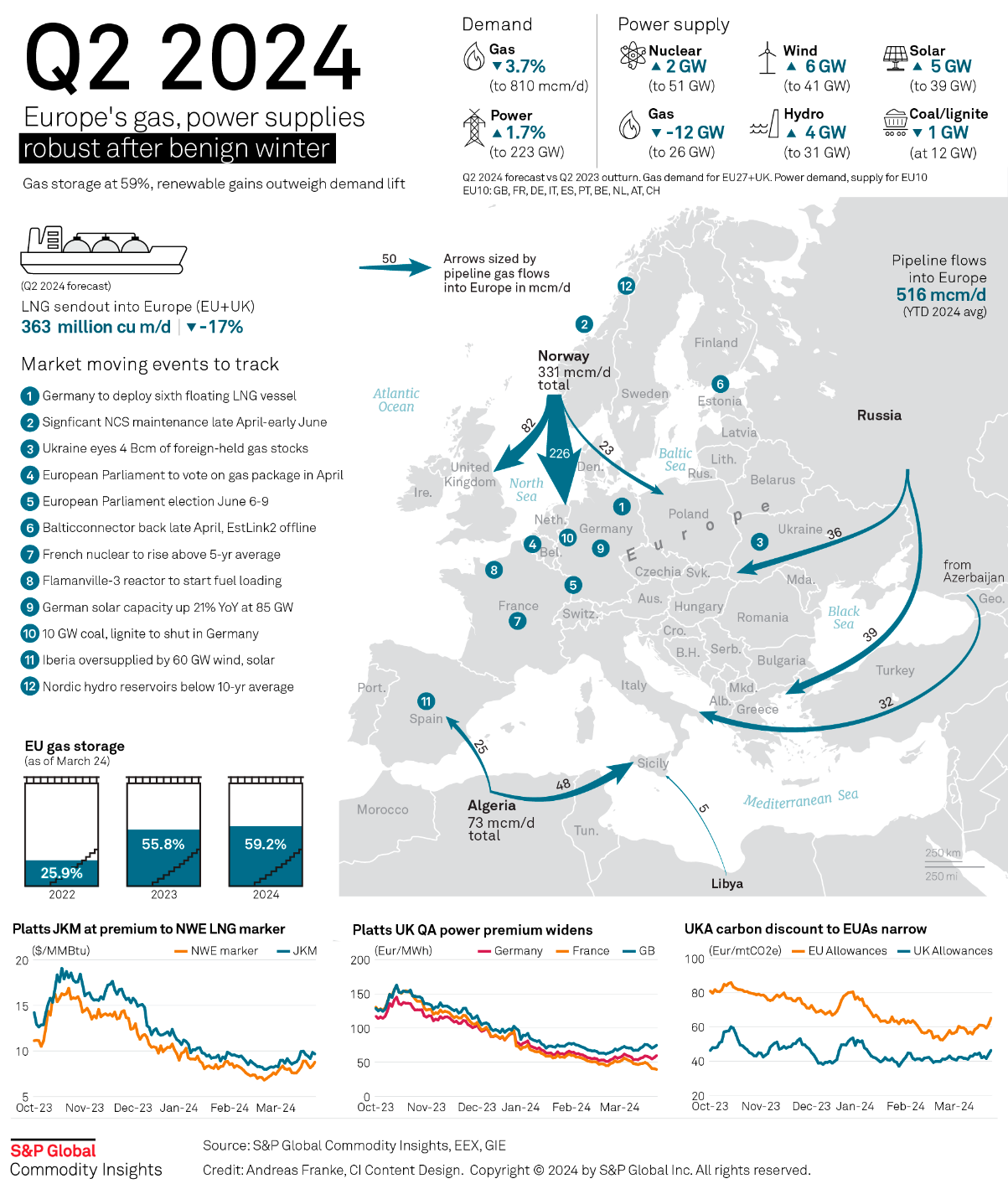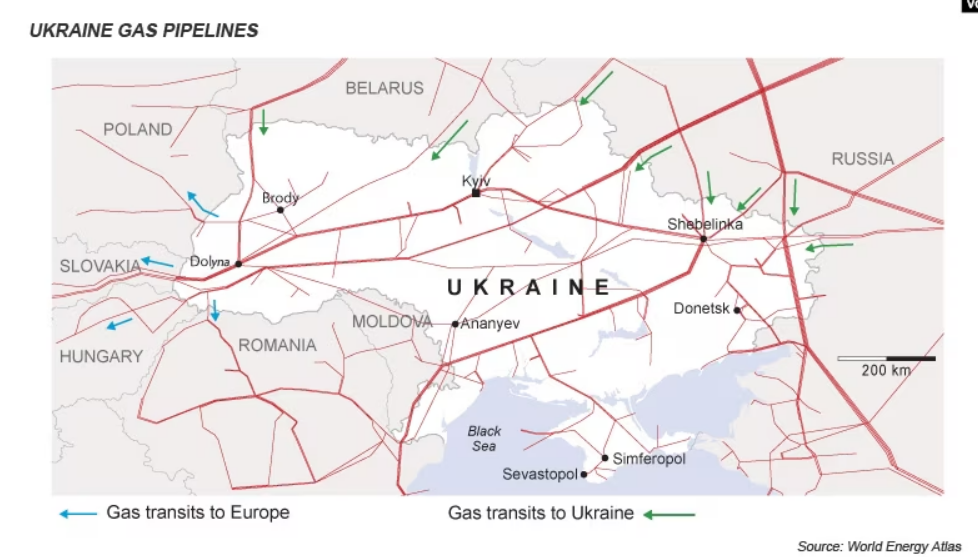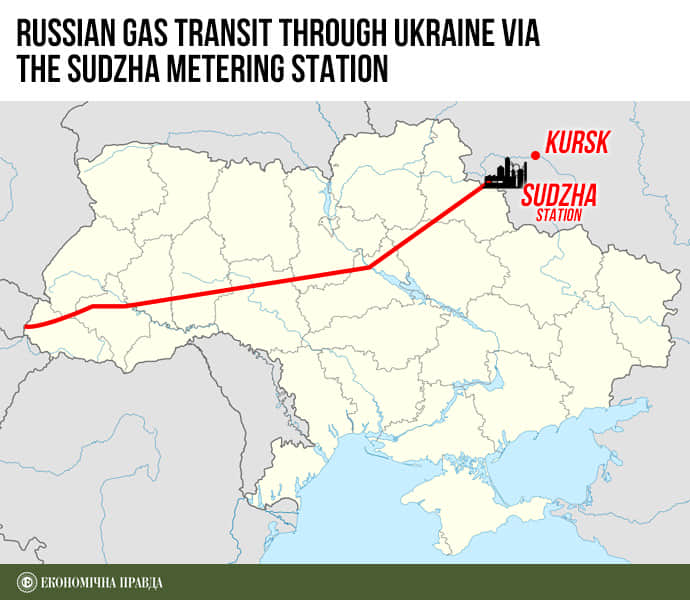BAKU, Azerbaijan, August 21. As experience shows, the Russian-Ukrainian conflict and Europe’s shift to renewable energy sources have not yet led to a complete reduction in the role of gas in the continent’s energy mix. EU countries have continued to purchase gas from Russia, although direct supply volumes have significantly decreased. In 2021, Russia supplied about 155 bcm of gas directly to the EU, but by the end of 2022, this had dropped to 63.8 bcm.
U.S. LNG suppliers, following Russia’s lead, have also started prioritizing regions willing to pay higher prices. Norway, which the EU had placed its last hopes on, is unable to meet member states' energy demands at a low cost. There are, of course, objective reasons for this. LNG is more expensive than pipeline gas due to the higher costs of production and sea transport. A similar situation exists with Algerian gas. The EU also can’t rely on its own resources, as domestic gas production has declined by a third due to resource depletion. The resulting deficit can only be covered by imports, but this is difficult to achieve with the sanctioned eastern neighbor.
Russia has accepted the loss of the European market and is now shifting all its export focus to Asia. The EU, meanwhile, is grappling with a serious problem: the number of available suppliers is dwindling rapidly, and competition among EU countries for these suppliers is intensifying, making it crucial to act quickly and decisively. In this context, Europe is urgently searching for alternative gas suppliers, and Azerbaijan, with its extensive experience in executing strategic initiatives, stands out as a reliable option.
Kyiv has made it clear that it has no plans to extend the agreement on Russian gas transit, which expires at the end of 2024. This appeal by EU member states and Ukraine to Azerbaijan has drawn significant media attention. Ukraine’s gas transportation system has a massive capacity of 146 bcm, and it would be a grave mistake to let these pipelines sit idle while Europeans shiver through the winter. Baku has confirmed that representatives from Ukraine and the EU have reached out, seeking assistance in supplying and transiting natural gas to certain EU countries.

LNG and pipeline gas suppliers in the EU, 2Q2024
The main consumers of Russian gas flowing through Ukraine are Hungary, Austria, and Slovakia, with Italy receiving smaller amounts. Sanctions against Russia and plans to phase out Russian gas haven’t fully resolved the gas supply issue. Ukraine, meanwhile, is tasked with keeping its gas transportation system operational, and maintaining compressor stations involves significant costs. There has even been discussion about shutting down unnecessary and surplus compressor stations. Ukrainian experts believe there is enough gas for domestic use, but not enough for EU countries like Slovakia, Czechia, and Austria. As a result, any disruptions to European energy security could strain relations between these countries.

Gas pipelines passing through Ukraine
Kyiv is still weighing options for gas transit involving third countries or EU companies, as long as the gas is not from Russia. The economic benefits from transit are significant, with Kyiv earning about $1 billion a year in transit fees. The only supply route for European consumers, mainly Austria and Slovenia, runs through the Sudzha gas metering station on the border of Kursk Oblast, Russia. Recent Ukrainian military operations in this area and the fighting around Sudzha have raised concerns about the security of gas transport to the EU. If transit is interrupted, gas prices could rise. With the era of cheap Russian energy coming to an end, the EU is looking for new solutions to address this issue.
Kyiv and Brussels reaching out to Azerbaijan about gas supplies indicates that Naftogaz of Ukraine is open to negotiating with SOCAR, Azerbaijan’s state oil company. With the expiration of the Russia-Ukraine gas transit agreement, there's a proposal to import Azerbaijani gas through a point on the Russia-Ukraine border. This could create significant opportunities for all involved. Firstly, it would meet the gas needs of the EU member states mentioned. Secondly, it would allow Ukraine to maintain its role as a transit country and earn stable revenue from gas transit. Thirdly, it would enable Azerbaijan to continue its crucial role in ensuring Europe’s energy security. For Russia, Azerbaijan’s role as an intermediary with third countries is also significant.
Thus, Azerbaijan is emerging as the most reliable gas supplier to the EU, giving Brussels and Kyiv good reason to depend on Baku. More expensive alternatives are unlikely to be acceptable to European consumers. In January 2024, Azerbaijan once again confirmed its reliability as an energy supplier by increasing gas exports through the TAP pipeline, a key part of the Southern Gas Corridor project. If the plan to transport Azerbaijani gas from the Russia-Ukraine border moves forward, the EU could receive gas at a more affordable price. Successful implementation of this export project to the south and east will undoubtedly make a substantial contribution to improving Europe’s economic situation.







